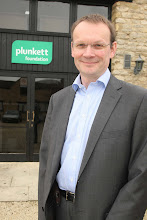Right to Try is a simple idea. All too often communities hear of the closure of a shop just as it is about to close its doors. This then creates an almost impossible task of deciding that the shop could be saved, rallying the community, setting up a new organisation, raising the funds to save the shop etc. All this has to be done before the failed enterprise can be bid for. All too often this results either in having to restart the enterprise or, in some cases, the shop being lost to private housing.
Right to Try calls for the a community to be able to express its interest in trying to save a shop and being given a period of time to put its proposal together. This simple breathing space could save an enormous amount of stress for many communities. It would also encourage shop owners to discuss plans in advance.
We'll be raising this idea with all parties, but congratulations to the Co-operative Party for getting in first.




